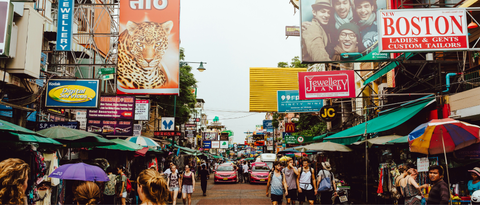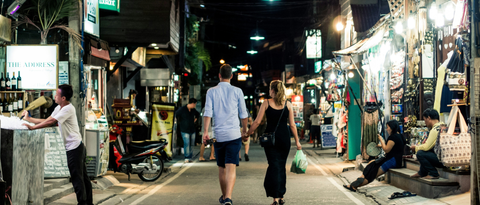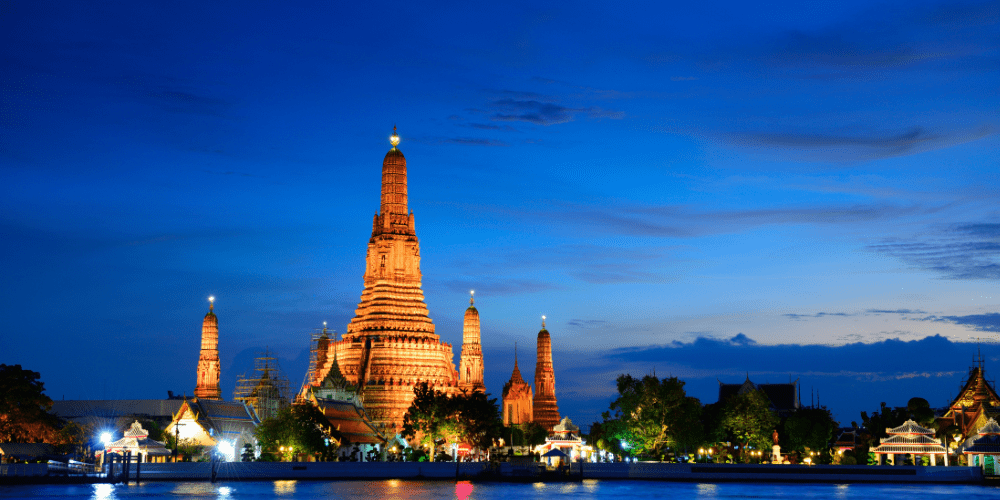Is It Safe to Drink Tap Water in Thailand? Your Comprehensive Guide
The general rule of thumb is to avoid drinking tap water in Thailand. While the allure of Thailand's exotic charm is undeniable, ensuring your health and well-being should be a top priority. In Thailand, the quality of tap water can vary significantly across different regions. The safety of tap water largely depends on the purification processes in place. While some urban areas may have relatively safe tap water, many parts of the country, particularly rural areas and smaller towns, have water that is generally not considered potable. There are common concerns of contamination from bacteria, parasites, and pollutants, making drinking water in Thailand from the tap a potential health risk.
What Happens If You Drink Tap Water in Thailand?
Tap water in Thailand may contain harmful bacteria, viruses, or parasites, which can lead to various health problems. These health problems may range from mild gastrointestinal discomfort to severe illnesses such as diarrhea, hepatitis, cholera, or typhoid fever. Visitors from other countries, especially those unfamiliar with the local water, may be at a higher risk of getting sick. Common symptoms of waterborne illnesses may include nausea, vomiting, stomach cramps, and dehydration, which can disrupt travel plans.

How to Stay Healthy and Hydrated in Thailand (How-To Guide)
To ensure you stay healthy during your time in Thailand and enjoy safe water in Thailand, the most recommended way to prevent waterborne illnesses is by prioritizing purified water for drinking.
- Make a Water Purifier Bottle Your Primary Hydration Tool: Investing in a high-quality water purifier bottle is an essential and smart choice for travelers. These portable and convenient tools can effectively treat water from various sources, making it safe to drink, especially by removing dangerous viruses like Hepatitis. By adding a reliable water filter bottle to your travel kit, you gain robust protection against waterborne contaminants, allowing you to explore Thailand more confidently and safely while reducing plastic waste.
- Supplement with Bottled Water: While your water purifier bottle is ideal, commercially sealed plastic bottles of water are another safe option. Always ensure the seal on the bottle is intact before consuming.
- Be Cautious with Ice: While many reputable establishments use purified water to make ice, it's always safer to inquire about the source of the ice or opt for beverages without ice if you are unsure to avoid potential contamination.
- Choose Cooked Foods: Stick to thoroughly cooked or boiled foods, as they are less likely to harbor harmful bacteria than raw or undercooked dishes.
- Wash Fruits and Vegetables Safely: If you consume raw fruits or vegetables, thoroughly wash them with clean, purified water or ensure they are peeled to remove potential contaminants.

Can you drink boiled tap water in Thailand?
While boiling tap water can effectively kill most bacteria and parasites, making it somewhat safer for drinking, it does not remove chemical pollutants or heavy metals. Therefore, while it's an improvement, it's still advisable to use a water purifier bottle for complete safety.
Can you brush your teeth with tap water in Thailand?
For brushing your teeth, it is strongly recommended to use water from a water purifier bottle or bottled water to avoid accidentally ingesting harmful pathogens present in tap water. Even a small amount ingested can potentially lead to discomfort. This applies to concerns like "can Americans drink tap water in Thailand?" – American travelers should follow the same precautions as other international visitors. Most Thai locals also recommend against it.
Can you drink water in hotels in Thailand?
Most reputable hotels and resorts in Thailand understand traveler concerns and provide guests with complimentary bottled water or have robust water filtration systems in place. Drinking hotel water is generally safe, but it's always wise to double-check the source or use a water purifier bottle for peace of mind.

Can I drink the tap water in Phuket?
Even in popular tourist areas like Phuket, where water might undergo some treatment, it is generally advisable to refrain from drinking tap water directly. Stick to bottled or purified water to prevent potential gastrointestinal issues during your stay.
Can I wash my face with tap water in Thailand?
Tap water in Thailand should be generally fine for external use, such as washing your face or showering. However, it's best to avoid getting tap water in your mouth or eyes to minimize any risk of accidental ingestion.
Can I have ice in Thailand? & Should you have ice in drinks in Thailand?
Ice in Thailand is often made from purified water, especially in reputable restaurants, hotels, and tourist-focused establishments. However, if you're unsure about the source of the ice or are at a less established vendor, it's safer to err on the side of caution and either inquire about the source or opt for beverages without ice to prevent potential contamination.
Conclusion
By following these precautions and opting for safe drinking practices, you can enjoy your journey through Thailand without worrying about the quality of its water. Remember, a healthy traveler is a happy traveler!
External Sources:
- World Health Organization (WHO) - Thailand - Sanitation, Drinking Water and Hygiene Status Overview
- Centers for Disease Control and Prevention (CDC) Yellow Book- Thailand
For additional information:
- Lonely Planet Travel Guide: - Thailand Travel Guide. Lonely Planet is a renowned travel guide publisher known for its comprehensive and reliable information on destinations worldwide. Their Thailand travel guide provides valuable insights into various aspects of travel, including tips on staying healthy and safe, as well as water consumption recommendations.
- Thai Ministry of Public Health: The Thai Ministry of Public Health is the government agency responsible for Thailand's public health policies and initiatives. Their website often provides up-to-date information and guidelines on health-related matters, including water quality and safety standards. Checking their official publications or statements can offer valuable insights into the current state of water safety in different regions of Thailand.
Answers to Common Questions
How Can I Not Get Sick in Thailand?
Avoid tap water, use a water filter bottle, be cautious with ice, choose cooked foods, and wash or peel fruits and vegetables to reduce the risk of waterborne illness.
Can you drink boiled tap water in Thailand?
Boiling can kill bacteria and parasites, but it does not remove chemical pollutants. It's best to drink bottled or purified water from a filter bottle.
Can you brush your teeth with tap water in Thailand?
It’s safer to use bottled or purified water for brushing teeth to avoid accidentally ingesting harmful bacteria.
Can Americans drink tap water in Thailand?
No. It's not recommended. American travelers should stick to bottled or filtered water to avoid potential health risks.
Can you drink water in hotels in Thailand?
Many hotels provide bottled water or use filtration systems, but it's always best to confirm the source before drinking.
Can I drink the tap water in Phuket?
Tap water in Phuket may be treated, but it's still best to avoid drinking it directly. Use bottled or purified water to prevent stomach issues.
Can I wash my face with tap water in Thailand?
Yes. Tap water is generally safe for external use like washing your face, but avoid getting it in your mouth or eyes.
Can I have ice in Thailand?
Ice from reputable establishments is usually made from purified water, but if you’re unsure of the source, it’s best to avoid it.
Should you have ice in drinks in Thailand?
If you’re uncertain about the cleanliness of the establishment or the ice source, skip the ice to reduce the risk of contamination.


